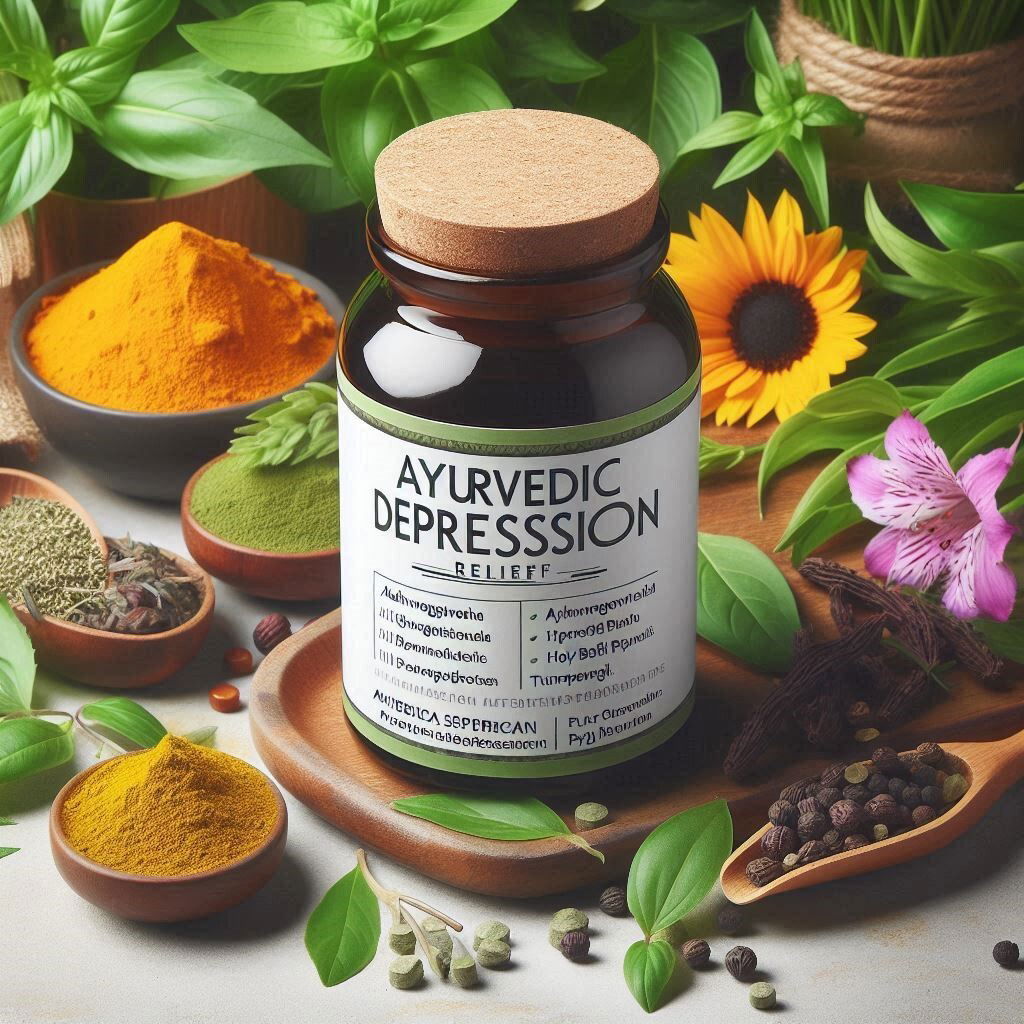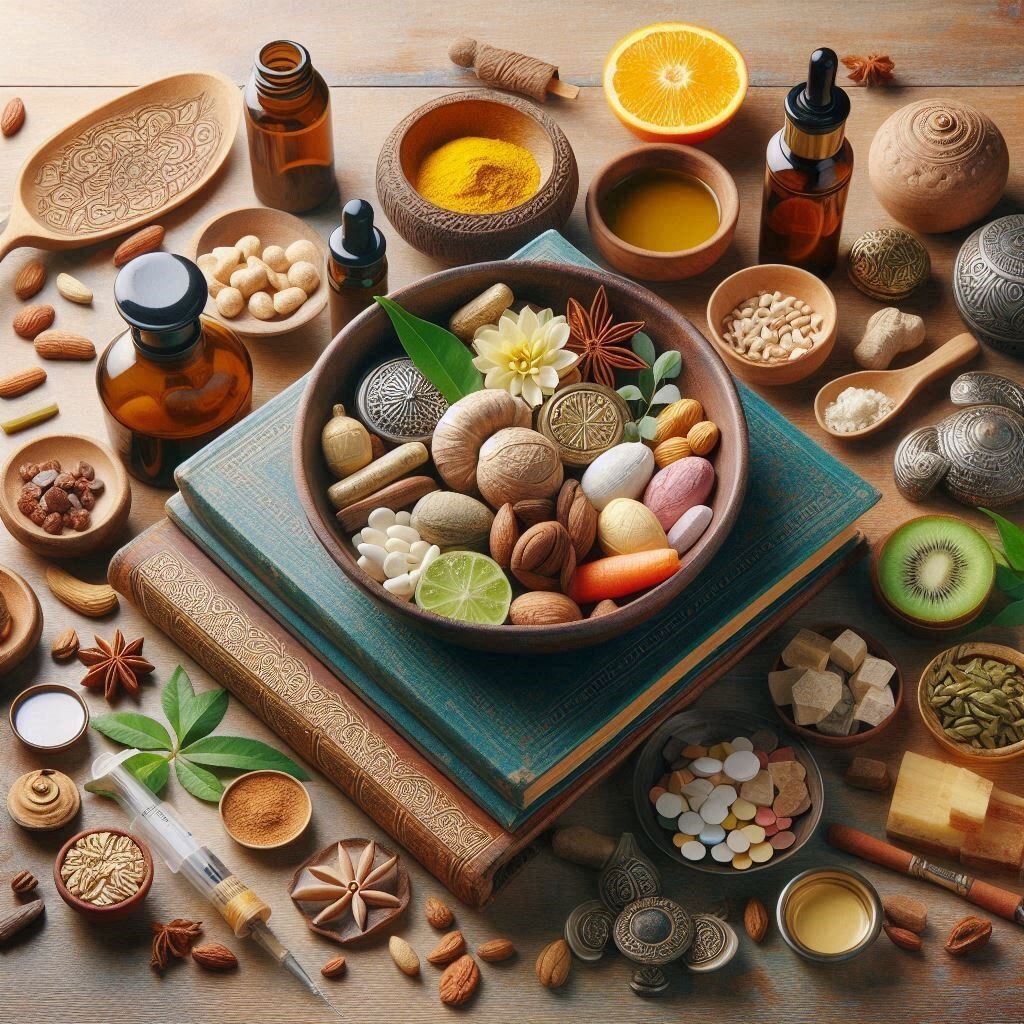Ayurvedic Medicine for Depression: Holistic Mental Health Approach

Introduction
Depression is a common mental health disorder that affects millions of Americans each year, often leading to a significant decline in quality of life. While conventional treatments like medication and therapy are widely used, many people seek alternative approaches that align more closely with their personal beliefs and desire for natural remedies. Ayurvedic medicine, an ancient system of healing from India, offers a holistic approach to managing depression. This article explores the principles of Ayurveda, its relevance to mental health, and how Ayurvedic medicine can be an effective treatment for depression.
Understanding Ayurvedic Medicine
Ayurveda is one of the world’s oldest holistic healing systems, originating in India over 3,000 years ago. It is based on the belief that health and wellness depend on a delicate balance between the mind, body, and spirit. Ayurvedic medicine uses a variety of techniques, including diet, herbal remedies, yoga, meditation, and lifestyle changes, to promote overall well-being and treat specific ailments.
The Ayurvedic Perspective on Depression
In Ayurveda, depression is seen as a result of imbalances in the body’s three fundamental energies, or doshas: Vata, Pitta, and Kapha. Each dosha governs different aspects of physical and mental health. An imbalance in any of these doshas can lead to symptoms of depression. Ayurvedic treatments aim to restore balance and harmony within the body, thereby alleviating depressive symptoms.
Ayurvedic Medicine for Depression
- Herbal Remedies: Ayurveda utilizes a variety of herbs to support mental health and treat depression. Some of the most commonly used herbs include: Ashwagandha: Helpful to reduce stress and anxiety as it has an adaptogenic property helps to get calm and clear thinking avoiding unnecessary brain chatters. Really helpful to make u feel less anxious and depressed feeling by balancing the mood without going to the meds.
- Brahmi (Bacopa monnieri): It helps in enhancing the cognitive behavior and at the same time it has calming behavior so best suited for depression both as calming effect and enhancing impact.
- Turmeric: It helps in the inflammation and having the antioxidant properties helping you balance the mood and helpful for depression.
- Jatamansi: Helpful in reducing stress, and used to treat anxiety, and depression.
- Diet/Nutrition: Ayurveda gives much weight to the diet in terms of the mental health of a person. The intake of diet which helps the imbalanced dosha go for a reduction will be helpful to avoid depression. Intake of fresh organic foods and avoiding the processed, as well as junk foods. Intake of spices and herbs which are used in the treatment of mental disorders is said to be helpful.
- Yoga/Meditation: These two go hand in hand with the Ayurveda. Helps in calming the mind and to relax, reduces the stress and relief the mind and soul. Different asanas and pranayama to balance the dosha and makes u feel light and to help bring the surrounding better.
- Lifestyle: The following ways to be taken care of in ayurvedic to keep away from depression. Establishing a proper and best sleeping routine. Helping in physical and mental developmental activities like exercising and by spending time with nature. Talk and develop good company which influence the behavioral activities positively.
Why ayurvedic medicine?
- Natural and holistic cure: They help in solving and treating the root cause of the problem and are not symptom-based as in the chemical meds.
- Personalized treatment: treatment is carried out in an individualized manner based on an individual’s liver status, intestinal tract and skin to ensure the betterment of the affected person. Side effects: As most of the activities or the treatment in ayurvedic are natural and herb-related the side effects are fewer when compared with the chemical med.
- Overall wellbeing: Ayurveda does not only consider healing the depression they also benefit by healing the physical issues which lead to depression easing the life of an individual by their way of treatment individually.
Ayurvedic Medicine Implementation for the Treatment of Depression
- Consult Ayurvedic Practitioner: before undertaking any activities within the Ayurvedic treatment, it is paramount to consult a corresponding practitioner. He/she will be able to determine the existing dosha imbalances and set a proper course of action.
- Take Herbal Supplements: the schedule should incorporate regular intake of the herbal supplements recommended by a practitioner. When purchasing the supplements, one should make sure they are natural and of high quality. Diet Changes: as stated by a practitioner, undertake daily dietary changes corresponding with a diet recommended for a certain dosha. It is advised to focus on the daily intake of fresh foods while as much as possible avoiding the products of an unhealthy nature.
- Yoga and Meditation: in a prescribed order, undertake daily exercises of yoga and meditation. This could be done in a class setting, through online tutorials, or other similar ways. The important point is to exercise proper techniques on a regular basis.
- Lifestyle Changes: make corresponding adjustments in your daily lifestyle. This includes your sleeping regime, physical activity, and fostering positive social connections.
Potential Challenges and Restrictions
- Available Practitioners and their Quality: unfortunately, it is not an easy task to find an adequately experienced practitioner. Thus, special care should be exercised through the use of reviews and recommendations.
- Changes and Commitment: the process requires substantial general discipline and long-term engagement. It may take some time before any truly substantial improvements might be noticed.
- Combination with the Available Treatment: if a person is currently subjected to some other type of conventional treatment, special attention should be exercised during the combination of the two methods as they may interfere with one another.
FAQs
Q1. What is Ayurvedic medicine for depression?
Ayurvedic treatment of depression involves the usage of natural herbal supplements, changes in diet, yoga and meditation exercises, as well as alterations in a person’s daily life.
Q2. How much is Ayurvedic medicine for treating depression effective?
The medicine can be highly effective for a number of individuals. It is most effective, though, when combined in a special order intended for a specific individual.
Q3. Are there any side-effects related to Ayurvedic Herbs for depression use?
Such things could happen, so you should consult a practitioner in the case of any abnormalities.
Q4. Are Ayurvedic herbs safe for use?
Ayurvedic herbs are generally safe while following the appropriate instructions under a licensed practitioner. High-quality herbs should be sourced, and instructions followed.
Q5. Can they be used concurrently with conventional treatments?
Ayurvedic medicine can be used alongside conventional treatments, and you should consult a licensed physician before using herbal treatments to ensure that a cohesive strategy is followed.
Q6. How long until depression is improved using Ayurveda?
While most people experience some improvements within a week or two, the length of time it takes for results depends on the severity of the depression. In some cases, depression may not improve for a couple of months.
Q7. Is there a diet that goes along with Ayurvedic depression treatment?
Yes, diet plays a large part in Ayurveda. In order for the treatment to work, you must follow a diet that pacifies your imbalanced dosha.
Conclusion
In conclusion, Ayurveda has found a practical application in various aspects of our lives, including the cure of psychological conditions such as depression. It offers an insightful yet rudimentary method to tackle the root cause of this profound feeling of sadness and anxiety. The use of natural herbs, dietary changes, and exercise makes the process all the more appealing. Even though it requires consistency and commitment, the benefits far outweigh the cost. In addition, the treatment is inexpensive and worth a try for an individual seeking to deviate from conventional means that have proven to be somewhat ineffective and costly. It definitely leads to a healthier and more balanced life.
